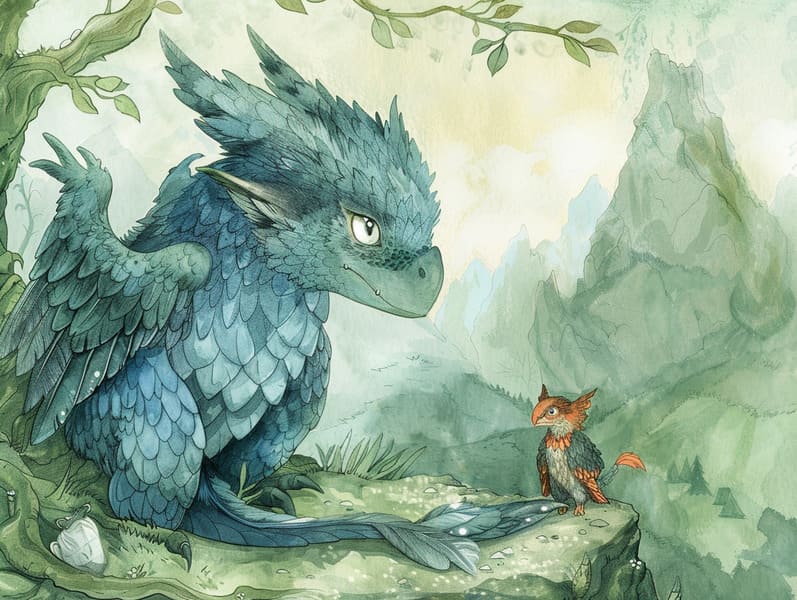
Evening is a treasured time for caregivers and children. It’s a time to settle down, snuggle, and experience the enchantment of nighttime tales.
For years, nightly tales for children have been a beloved practice, offering more than just a way to fall asleep. They provide an occasion for bonding, growth, and igniting vision.
Significance of Bedtime Stories
Children's bedtime stories are not just a way to wrap up the day. They play a essential role in a child’s development and in reinforcing the guardian-child relationship. Here’s why they matter:
1. Bonding Time: Sharing bedtime stories encourages a special time of affection between adults and their kids. It’s a moment of togetherness that helps children feel loved and reassured.
2. Speech and Language Skills: Being read to helps children develop their language acquisition. They acquire new phrases, understand grammar, and improve their comprehension and comprehension abilities.
3. Imaginative Skills: Narratives for little ones transport them to fantastic worlds, fostering fantasy. They imagine characters, settings, and adventures, which ignites their fantasy.
4. Emotional Understanding: Nighttime tales often involve characters facing obstacles and moods. These accounts help kids recognize and manage their own reactions, building feeling recognition.
5. Brain Growth: Being read a tale helps children develop concentration, remembrance, and analytical skills. They learn to follow scripts, remember facts, and foresee consequences.
Incorporating Nightly Stories
Creating a bedtime routine that includes reading aloud stories is doable and satisfying. Here’s how to develop a beloved part of your evening tradition:
1. Choose a Relaxing Place: Pick a comfortable place where you and your child can relax without disruptions. A peaceful bed or a comfortable reading nook works wonderfully.
2. Set a Regular Time: Establish a specific time each night for storytime. Uniformity helps children be ready and makes the tradition easier to maintain.
3. Choose Suitable Stories: Choose tales that match your child’s maturity. Small children might appreciate books with pictures with uncomplicated narratives, while school-age kids may be interested in detailed stories with more involved stories.
4. Get Involved with the Story: Make sure the tale be immersive by adding different voices and tones, adding effect sounds, and asking your child to join in. Ask points about the story to keep them listening.
5. Create a Calm Atmosphere: Adjust the lights, use hushed tones, and create a soothing environment to help your child calm down.
Locating the Best Bedtime Stories
There are numerous options where you can find fantastic bedtime stories for children. Here are some ways to think about:
1. Books for Children: Check out your neighborhood library or bookstore to find a broad selection of bedtime stories for kids. Perusing the selections together can be a delightful activity that also allows children to get stories that they like.
2. Web Resources: There are many places online that offer free bedtime stories. Sites like children's story websites provide a variety of short stories for kids that you can download. These websites are great for finding new and assorted stories without paying.
3. Apps for Storytelling: For nights when you’re too exhausted to read, use audiobooks or storytelling apps. These can provide a relaxing voice to read your child a story, ensuring they still get their bedtime story fix. Apps often offer engaging components that can engage children further.
4. Personal Stories: Craft your own stories reflecting your child’s experiences. Personalized stories can be highly engaging and meaningful. You can engage your child in the writing process, making them a part of the adventure.
Why Short Stories Work
Short stories for kids are quite advantageous for bedtime. They provide all the positives of longer stories but are more short, making them perfect for settling down before sleep. Here’s why short stories are a good choice:
1. Simple to Understand: Quick stories are easy and simple for kids to grasp, even after a long day. They can easily grasp the narrative and enjoy the story without becoming uninterested.
2. Fast Engagement: Concise stories immediately engage children, holding their attention and interest. This makes them excellent for keeping bedtime routines easy yet enjoyable.
3. click here Various Options: Quick stories allow for variety in your bedtime narrative. You can get a different story each night, keeping the practice interesting and exciting for your child.
4. Time Efficiency: For busy parents, short stories are a efficient way to verify children still get their nightly dose of storytelling. They fit well into a crowded schedule while still offering the full advantages of a bedtime story.
The Delight of "Read Me a Story"
The simple phrase, “Can you read to me?” can offer a world of magic for children. Saying yes to this request not only caters to a child’s requirement for attention and engagement but also fosters lasting moments. Here’s why it’s special:
1. Link: Reading to your child encourages a deep emotional relationship. It’s a time for togetherness, sharing, and bonding.
2. Tradition: Creating a bedtime story habit creates a valued tradition that children anticipate every night. It’s a ritual that can be shared through generations.
3. Development Together: As you tell tales, you’ll observe your child’s development and advancement. Their responses, reactions, and understanding of the stories evolve, offering insights into their developing minds.
4. Protective Space: Bedtime stories provide a safe space for children to examine emotions, face fears, and find comfort in the reliable presence of a parent.
The Last Word
Children’s bedtime stories are a important tool for growing a child’s development and building unforgettable times of connection.